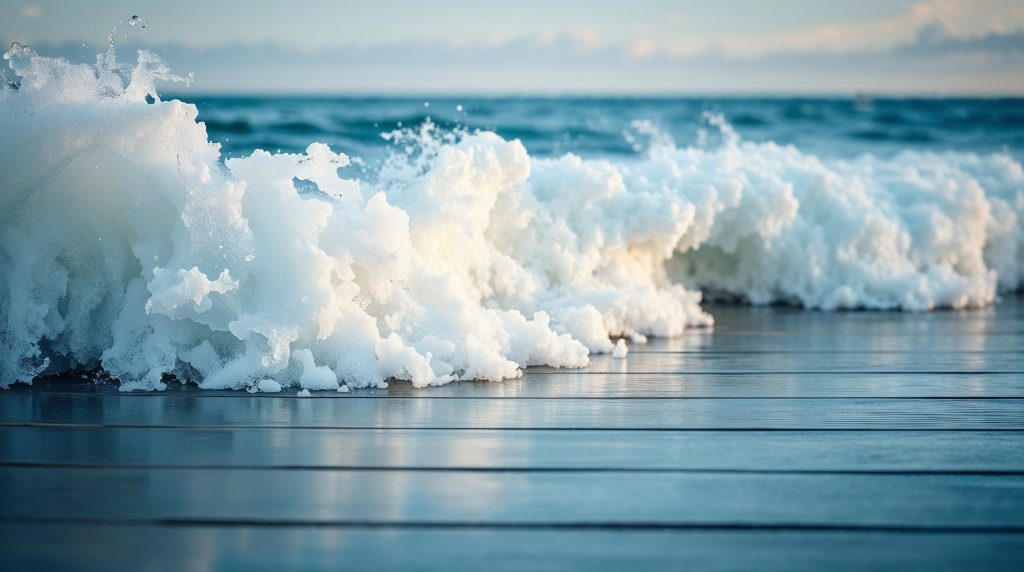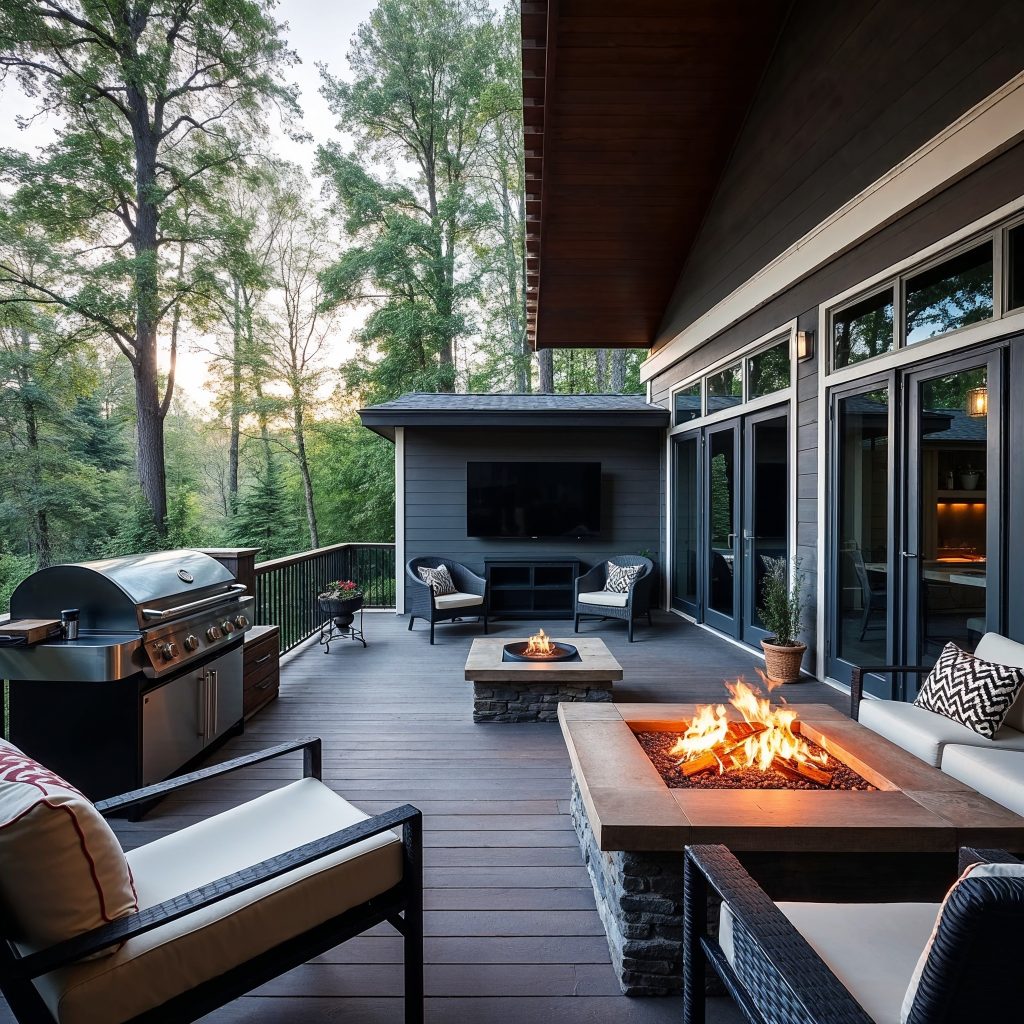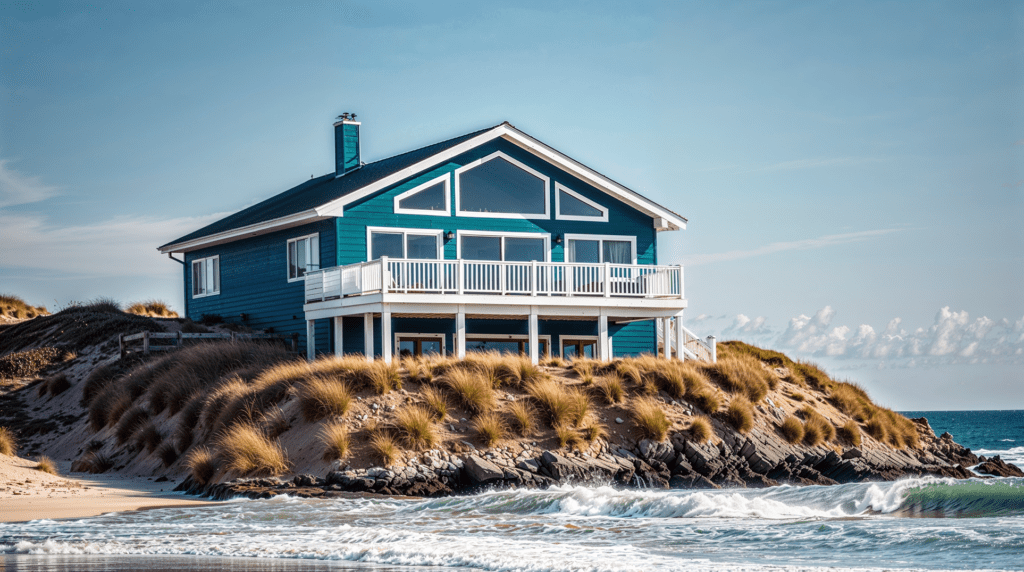When it comes to decking materials, homeowners near coastal areas face a unique challenge—saltwater. The salty air and corrosive sea water can wreak havoc on traditional wood decks, leading to deterioration, decay, and costly repairs. That’s where composite decking like Lumberock comes in. Let’s explore why composite decking outperforms wood in marine conditions.
1. Saltwater’s Impact on Wood Decking
Wood decking might seem like a natural choice for coastal homes, but the reality is that saltwater is harsh on organic materials. When exposed to salt air and sea spray, wood decking absorbs moisture, leading to:
- Warping and Splitting: Wood swells when it absorbs moisture, and once it dries out, it can shrink and crack, weakening the structure.
- Rot and Decay: The constant exposure to saltwater and humidity accelerates the growth of mold and mildew, leading to rotting over time.
- Pest Infestation: Termites and other wood-damaging pests thrive in moist, decaying wood, adding another layer of issues for homeowners.
These conditions require frequent maintenance—sealing, sanding, and treating the wood to ensure it remains intact. Even with regular care, the lifespan of wood decks is significantly shorter than that of composite materials.
2. Why Composite Decking Stands Strong Against Saltwater
Lumberock composite decking, on the other hand, is designed specifically to withstand the challenges of coastal environments. Here’s why composite wins every time:
- Immunity to Saltwater Damage: Composite materials are not affected by saltwater in the same way wood is. Lumberock is made from high-density polyethylene and natural minerals, which are resistant to rot, decay, and moisture absorption.
- Low Maintenance: Unlike wood, composite decking doesn’t require staining, sealing, or sanding. Simply clean with soap and water, and you’re done.
- Durability and Longevity: Lumberock decking is engineered to handle harsh weather conditions, including saltwater, sun, and humidity. It won’t warp, splinter, or crack over time, making it a long-lasting investment.
- Aesthetic Appeal: Composite decking maintains its beauty even after years of exposure to the elements. It resists fading, staining, and discoloration, keeping your coastal deck looking pristine.
3. Built for Coastal Living
Lumberock’s composite decking is built for those who live in coastal areas and want a decking solution that can handle the toughest environments. Whether you’re building a dock, patio, or poolside deck, Lumberock provides the perfect solution. Its natural-looking colors mimic the beauty of wood but with all the benefits of a synthetic material that won’t degrade in saltwater.
4. Environmentally Friendly Choice
Another advantage of composite decking like Lumberock is its eco-friendliness. Made from recycled materials, it’s a sustainable option that helps reduce the demand for virgin wood, protecting forests while still providing a durable, low-maintenance product.
5. The Last Deck You’ll Ever Need
Investing in composite decking for your coastal property means you can enjoy your outdoor space without worrying about constant upkeep. No more sanding, painting, or replacing warped boards. With Lumberock, you’re getting a product that’s built to last, offering you peace of mind for years to come.
Conclusion
If you live near the coast and are thinking about decking materials, it’s clear that composite wins every time. The harsh realities of saltwater, humidity, and pests make wood a poor choice for coastal environments. Instead, choose Lumberock composite decking for a long-lasting, low-maintenance, and beautiful solution that can stand up to the elements and thrive in the most challenging marine conditions.
Ready to make the switch? Explore Lumberock’s full line of composite decking solutions for your coastal home today!





